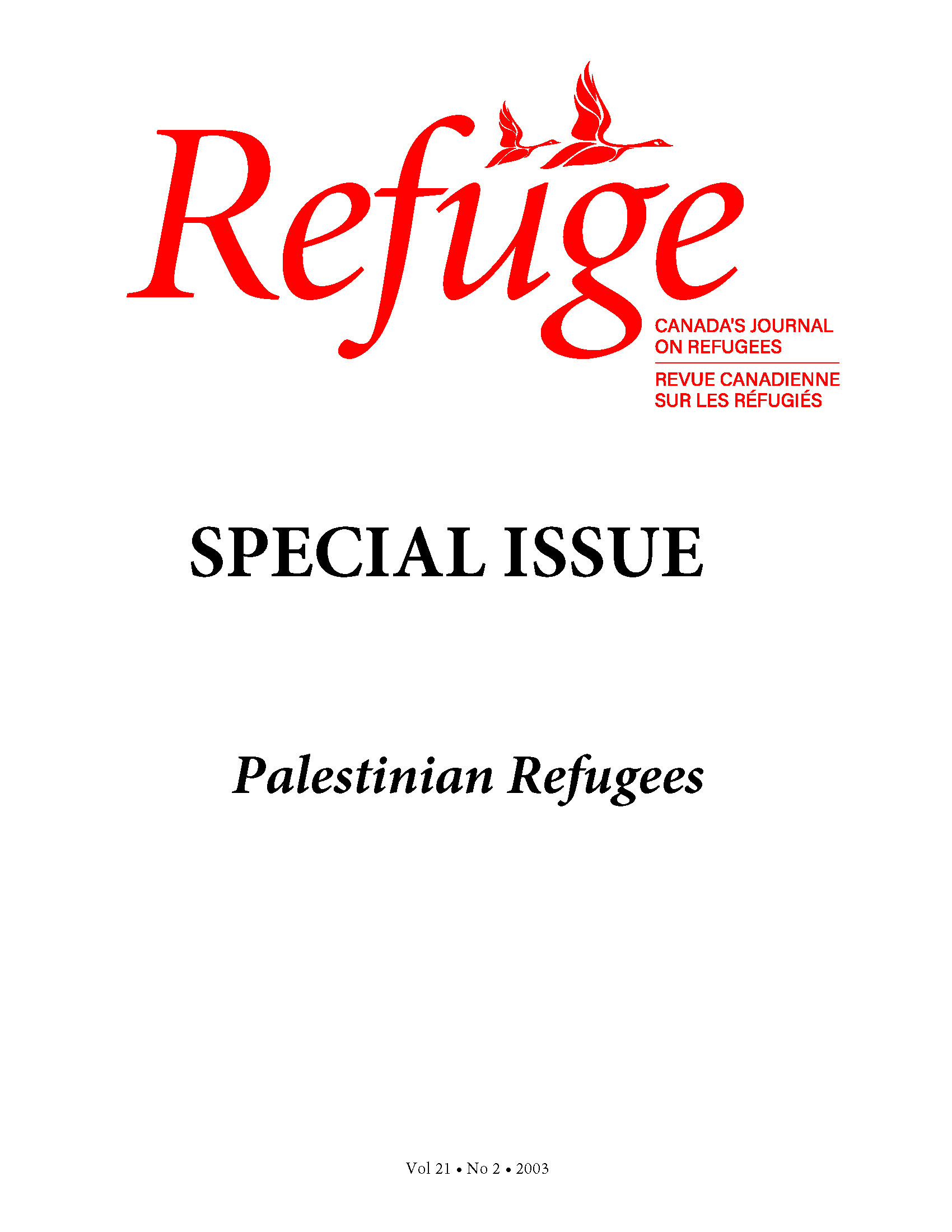Palestinian Emigration from Lebanon to Northern Europe: Refugees, Networks, and Transnational Practices
DOI:
https://doi.org/10.25071/1920-7336.21287Keywords:
Palestinian refugees, Lebanon, Europe, solidarity, transnationalism, migratory networksAbstract
Palestinians in Lebanon are one of the most important communities living in the Middle East, with nearly 350,000 refugees according to UNRWA figures. Since the 1980s about 100,000 Palestinians have emigrated from Lebanon to the Gulf countries and northern Europe, mainly Germany, Sweden, and Denmark. The Palestinian case leads us to reconsider the classical distinction between forced and voluntary migration. Migration has to be considered not only as forced, but also as the result of new forms of transnational solidarity between the different scattered Palestinian communities. This paper aims to demonstrate how refugee communities, like Palestinians, but also Kurds or Eritreans, use their social capital (i.e., solidarity networks) in order to adapt to new situations with strong constraints and to develop new forms of transnational solidarities.Metrics
Downloads
Published
How to Cite
Issue
Section
License
Copyright (c) 2003 Mohamed Kamel Doraï

This work is licensed under a Creative Commons Attribution-NonCommercial 4.0 International License.
Refuge authors retain the copyright over their work, and license it to the general public under the Creative Commons Attribution-Non Commercial License International (CC BY-NC 4.0). This license allows for non-commercial use, reproduction and adaption of the material in any medium or format, with proper attribution. For general information on Creative Commons licences, visit the Creative Commons site. For the CC BY-NC 4.0 license, review the human readable summary.








